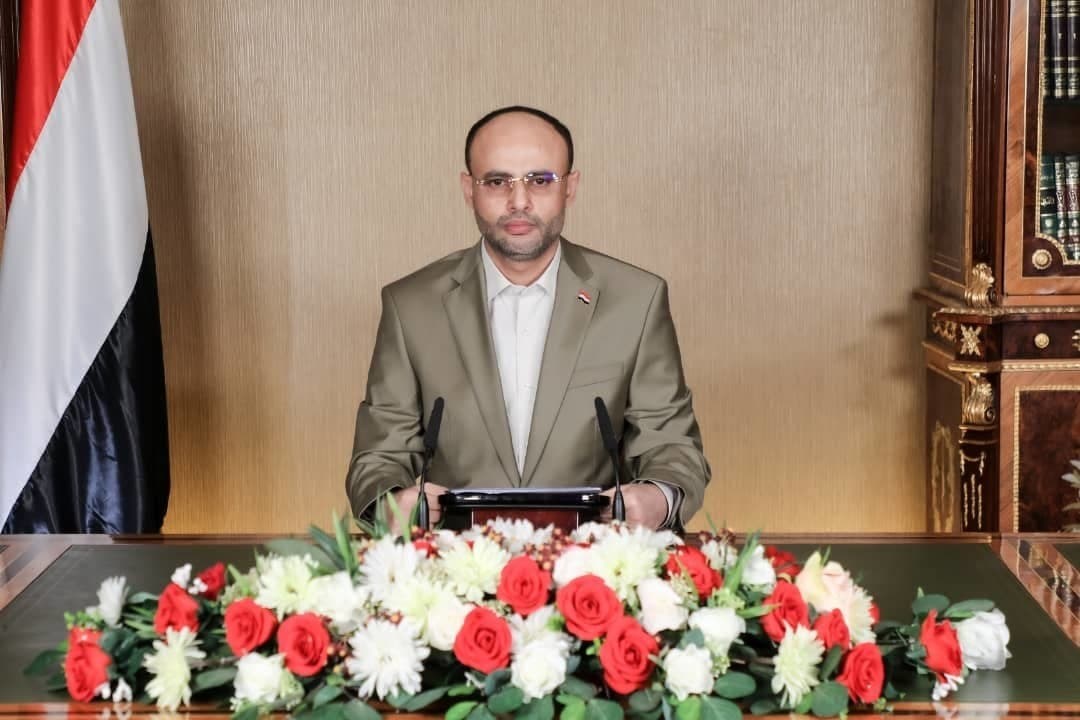Al-Mashat: Extending armistice linked to stopping Saudi aggression
Head of Yemen’s Supreme Political Council stresses that the armistice extension should improve Yemen's economic and human conditions.
-

Head of Yemen’s Supreme Political Council, Mahdi al-Mashat
The Head of Yemen’s Supreme Political Council, Mahdi al-Mashat, underscored the necessity for the Saudi-led coalition to end the war and siege on war-torn Yemen.
During a meeting with a visiting Omani team in the Yemeni capital Sanaa on Sunday, al-Mashat highlighted the significance of a long-term peace accord that guarantees the Yemeni people's sovereignty and independence.
Armistice extension
According to the top Yemeni official, the armistice extension should result in demonstrable improvements in Yemen's economic and human conditions, such as the payment of salaries and pensions to all civil officials.
He went on to say that the Yemeni people want an end to the Saudi-led aggression, the lifting of the crippling siege on the crisis-stricken country, and the implementation of the provisions of the UN-backed ceasefire, such as the normal operation of Sanaa airport, the reopening of Hodeidah Port, and the payment of employees' salaries.
Al-Mashat emphasized that an optimal solution to these concerns will be critical in easing people's suffering and creating a favorable environment for attaining peace.
Read next: Sanaa: Siege of Yemeni people hinders the extension of truce
The head of Yemen's Supreme Political Council also emphasized the importance of confidence-building measures that the Saudi-led coalition should take, considering that the alliance's insistence on the siege against Yemen amounts to a war crime and a crime against humanity that contradicts the requirements for peace.
Saudi violates truce
Furthermore, a Yemeni military official, speaking on condition of anonymity, stated that the Saudi-led coalition refuses to fully agree to the terms of an UN-brokered truce.
According to the official, the Saudi-led coalition forces and their affiliated insurgents breached the UN-brokered truce at least 160 times in the past 24 hours.
He said the violations included 37 flights by armed Saudi-led reconnaissance aircraft over the provinces of Marib, Taiz, Hajjah, Al-Jawf, Saada, Dhale, and Hodeidah, as well as border areas.
In June, the Saudi-led coalition of aggression, along with its mercenaries, committed 105 violations of the humanitarian and military armistice, according to a military official.
Read next: Sanaa: Truce nears ending, aggression countries deal with recklessness
It is worth emphasizing that the terms of the armistice agreement include “facilitating the entry of ships carrying fuel to the ports of Hodeidah, and allowing two flights to and from Sanaa airport every week.” However, the Sanaa government repeatedly "expressed its dismay at the Saudi side’s failure to implement the terms of the armistice, especially the closing of the airport and obstructing the entry of ships."
In March 2015, Saudi Arabia unleashed a catastrophic war on Yemen in coordination with its Arab allies and with arms and logistical backing from the United States and other Western countries.
Despite the fact that the Saudi-led coalition has failed to achieve any of its goals, the war has killed hundreds of thousands of Yemenis and created the world's worst humanitarian disaster.

 3 Min Read
3 Min Read










